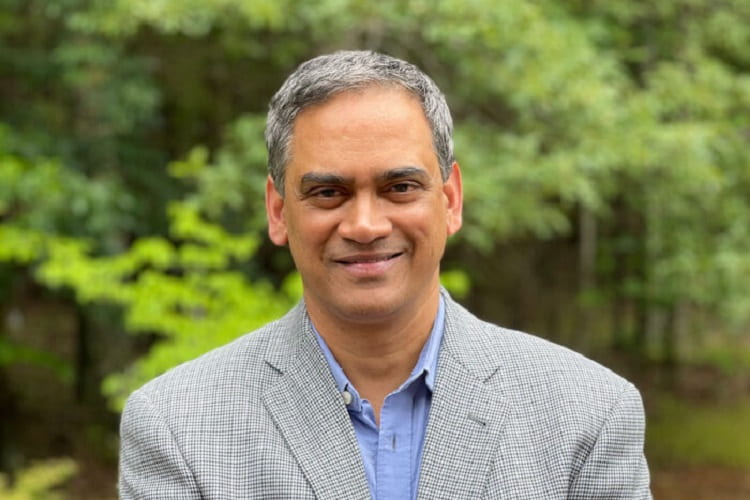Kodi S. Ravichandran, PhD, a world leader in understanding innate immunity, has been named a BJC Investigator as well as director of the Division of Immunobiology in the Department of Pathology & Immunology at Washington University School of Medicine in St. Louis.
His studies of how dead cells are cleared from the body have shed light on innate immunity — the body’s first line of immune defense — and the understanding of inflammation and tumor-causing conditions. He also will hold the Robert L. Kroc Professorship.
The BJC Investigator Program brings to the School of Medicine scientists who will have a transformational impact on research programs, bring innovative approaches to major biological questions, and whose discoveries stand to inform new ways of understanding disease and developing treatments.
Ravichandran currently is the Harrison Distinguished Professor of Microbiology and chair of the Department of Microbiology, Immunology and Cancer Biology at the University of Virginia. His appointment at Washington University begins Jan. 1.
The BJC Investigators Program is focused on basic science and was inspired by the Howard Hughes Medical Institute’s philosophy of investing in scientists with exceptional creative talent. The program aims bring 10 highly regarded researchers to the School of Medicine and the life sciences ecosystem in St. Louis. Ravichandran is the sixth BJC Investigator named.
BJC Investigators are recommended by a search committee of leading scientists at the School of Medicine. Their charge is to select candidates who already have indelibly changed their fields, whose discoveries will result in new and fundamental shifts in scientific thinking, and whose laboratories have become hubs for even more work that can galvanize and advance the impact of the school’s preclinical departments.
“I am so pleased to announce that Dr. Kodi Ravichandran will be joining our research community,” said David H. Perlmutter, MD, executive vice chancellor for medical affairs, the George and Carol Bauer Dean, and the Spencer T. and Ann W. Olin Distinguished Professor. “He is world-renowned for his work on efferocytosis, the process by which dead cells are cleared from tissues and body fluids. His work has already transformed an area in the field of innate immunity with immense importance to better understanding inflammatory and neoplastic diseases, such as cancer, and it easily fulfills the vision for recruitment by the BJC Investigator program. I want to thank Richard Liekweg, president and CEO of BJC HealthCare, and his team for committing the resources for the BJC Investigator Program, an initiative that is bringing brilliant scientists and laboratory teams to our medical school and to the St. Louis community. Dr. Ravichandran is exceptionally engaging as a scientist and collaborator, with the kind of warmth, generosity, energy and innovative spirit that can keep us advancing the fields of immunology and biomedicine writ large.”
The body turns over more than 200 billion cells per day as a part of its routine operations, and these dying cells are cleared with tremendous efficiency. However, failures in efferocytosis are now linked to autoinflammatory diseases including systemic lupus erythematosus, atherosclerosis, colitis, neurological disorders and respiratory airway inflammatory diseases. In a series of studies published in Cell, Nature, Nature Cell Biology and Nature Immunology, Ravichandran’s laboratory has identified the specific molecules that mediate the clearance process. In ensuing work, he has defined the molecular mechanisms by which immune cells called macrophages are attracted to dying cells, including the release of nucleotides mediated by pannexin channels. More recently, he has identified a series of critically important metabolites that he called the apoptotic secretome. Ravichandran and his team have shown that the metabolites in this secretome are not only important for attracting macrophages to clear the dying cells, but they also influence other macrophages to elicit an anti-inflammatory environment.
